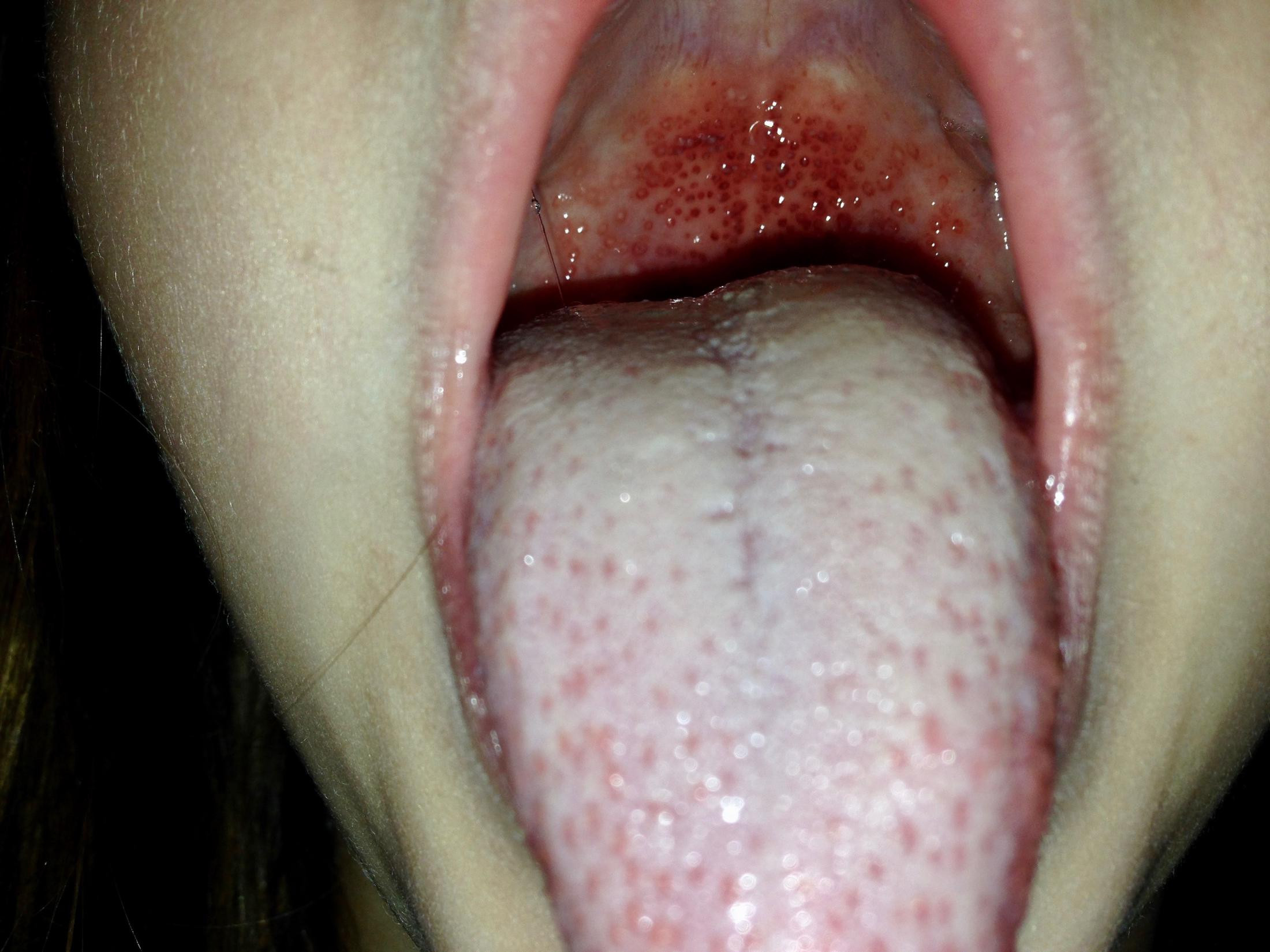Popular for both men and women, oral sex is a variety of sexual activity. This sexual activity increases the risk of various diseases if it is not practiced appropriately. Palatal petechiae, or mouth sores, are one of these symptoms.
What is Palatal Petechiae?
Palatal petechiae is a medical disease characterized by the presence of small, pinpoint-sized bruises on the roof of the mouth. Petechiae is a medical term that describes the presence of small bruises on the skin resulting from the burst of blood vessels. Little purplish-red patches on the palate can be a sign of this disorder. Palatal petechiae typically result from palatal injury due to oral sexual activity or infection.
According to research, the roof of the mouth may become bruised as a result of oral intercourse when the penis comes into contact with it. Activities like sucking can also create negative pressure, which causes blood vessels to expand and burst.
In addition to oral intercourse, palatal petechiae may indicate an infection with a variety of diseases, including COVID-19, sore throats, and infections caused by Adenovirus and Cytomegalovirus, which result in bruising on the roof of the mouth.
This condition is typically identified during an oral examination by a dentist. Bruising on the roof of the mouth typically resolves spontaneously within a few days or can be treated with antibiotics in the event of a bacterial infection.
Read more: Getting To Know Dental Dam, Mouth Protecter For Oral Sex
Symptoms of Palatal Petechiae
The soft palate, which is the upper rear portion of the soft mouth that is connected to the hard palate, is the site of palatal petechiae. Sometimes palatal petechiae cause different symptoms for different people.
Among the possible symptoms are:
- The roof of the mouth shows reddish or purplish circular patches
- The reddish patch has a diameter of less than 2 mm and remains visible when pressure is applied
 Image 1. Illustration of palatal petechiae. Credit: GrepMed - NickSa LawyerMD
Image 1. Illustration of palatal petechiae. Credit: GrepMed - NickSa LawyerMD
Management of Palatal Petechiae
Palatal petechiae typically resolve spontaneously and do not necessitate intervention. Nevertheless, if the red spots are a result of an infection, it is recommended to seek medical advice in order to receive suitable treatment.
Palatal petechiae that result from bruising from oral intercourse or vigorous vomiting may resolve within a few days to a week. In the event that the bruising is the result of a viral infection, the spots may resolve within 3-5 days, depending on the severity of the infection. Antibiotics may be prescribed by the doctor if the infection is caused by bacteria, or antivirals if the patches on the roof of the mouth are the result of a viral infection.
Read more: Reducing The Risk Of Disease Infections When Having Sex Oral
The do's and don'ts for safe oral sex
Oral sex involves the act of inserting the genital organs into the mouth. Oral sex is commonly perceived as a low-risk sexual practice, but it can actually increase the risk of transferring sexually transmitted diseases if adequate protection is not used.
There are numerous steps that can be taken to ensure the safety of oral sex, such as:
- Use a condom
- Use a dental dam
- Avoid having sex if you or your partner have risky conditions such as:
- Sexually transmitted diseases
- Have sores, scrapes, rashes, or warts around the mouth, anus, or genitalia
- Unhealed or irritated piercings in the genitals or mouth
- Infection of the throat
- Check your sexual health regularly
Oral sex or other infections may be the cause of palatal petechiae. If you are experiencing issues with your throat, you can either visit a doctor or make use of the consultation features that are available in the Ai Care application by downloading the Ai Care application from the App Store or Play Store.
Looking for more information about other diseases? Click here!
- dr. Alvidiani Agustina Damanik
Widener, R. (2024). What Is Palatal Petechiae (Bruised Palate)?. Available from: https://www.health.com/condition/oral-health/palatal-petechiae-can-dentists-tell-oral-sex
Chintapalli, S. (2022). Does Oral Sex Cause Palatal Petechiae?. Available from: https://www.medicinenet.com/does_oral_sex_cause_palatal_petechiae/article.htm
Better Health Channel. Oral Sex. Available from: https://www.betterhealth.vic.gov.au/health/healthyliving/Oral-sex
Zambon, V. (2020). Oral sex STI risk charts: Transmission and prevention. Available from: https://www.medicalnewstoday.com/articles/oral-sex-std-risk-chart











